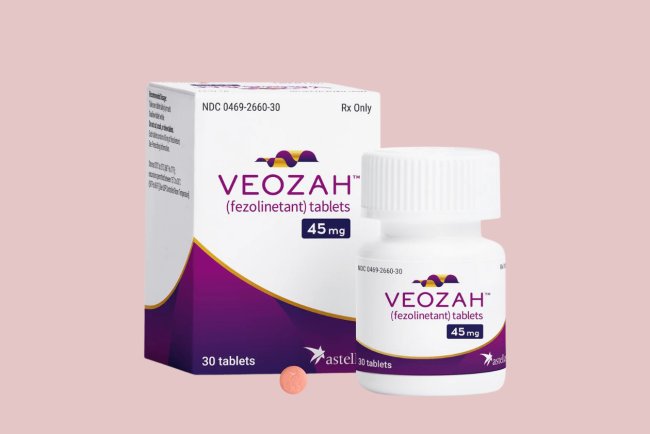Early and Tight Control of Crohn’s Disease Could Mean Long-Term Relief Here’s Why It Matters
Crohn’s disease has a way of arriving quietly, then wreaking havoc interrupting lives with unpredictable symptoms, missed meals, and too many anxious hours in doctors' offices. If you or someone you love is living with this chronic inflammatory bowel disease, you know it's about far more than just a “bad stomach.” It’s a long game, and the stakes are high.

However, new research is starting to change our perspective on the course of treatment, particularly the notion that taking vigorous, early action may help avoid permanent harm later on in addition to reducing flare-ups now. It is a change that goes against the grain and could change the course of many patients' lives.
Let us examine the how, why, and potential implications for Crohn's disease treatment going forward.
A Quick Primer: What Is Crohn’s Disease, Really?
To understand why early intervention matters, you first need to understand how this disease operates.From the mouth to the rectum, any area of the gastrointestinal (GI) tract may be impacted by Crohn's disease, an inflammatory disorder. It is brought on by a malfunctioning immune system, where immune cells overreact and generate inflammation where it should not be, rather than allowing the food, germs, and foreign objects that pass through the gut on a daily basis.
Depending on the individual and the site of inflammation, the symptoms can vary, although they frequently include:
Chronic discomfort in the abdomen
Prolonged diarrhea
Fatigue and weight loss
Fever
Blood in the feces can occasionally be seen.
In addition to being uncomfortable, Crohn's disease can gradually harm the digestive tract, resulting in strictures, fistulas, and ultimately the need for surgery. This is why it is so important to manage it well and early.
The Traditional Approach: A Cautious Climb

Historically, Crohn’s treatment has followed what’s called a step-up approach. Doctors would start patients on milder, often older medications like corticosteroids or immunomodulators—and only “step up” to newer, more powerful therapies if symptoms didn’t improve.
This conservative ladder-like method made sense when the side effect profiles of new drugs were less understood. But as treatments have evolved, many experts now question whether waiting too long to escalate therapy allows the disease to quietly progress.
Enter the “Tight Control” Strategy and Why It’s a Game-Changer
Newer therapies for Crohn’s, particularly biologic drugs, are much more targeted. Rather than suppressing the entire immune system, they work by blocking specific proteins known to drive inflammation.
A growing number of studies now support what’s known as the tight control model. Instead of reacting only when symptoms worsen, this strategy involves closely monitoring both how a patient feels and what’s going on under the surface through blood tests, stool samples, imaging, and endoscopy. Treatment is adjusted even when a patient feels okay, if inflammation is still present.
One landmark trial, the CALM study, showed that patients who were treated with this tighter, more proactive model targeting both symptom relief and invisible inflammation achieved better intestinal healing. In the world of Crohn’s, that’s not just a win; it’s gold.
What Long-Term Studies Are Now Telling Us

The latest follow-up data from the CALM trial reveals something even more promising: patients who achieved what's called deep remission meaning no symptoms and no signs of internal inflammation had a much lower risk of future disease progression.
Let’s break that down:
Patients with deep remission were far less likely to need surgery or be hospitalized for Crohn’s years after treatment began.
Even patients who felt well without intestinal healing, or who showed healing but still had some symptoms, had lower risk of complications though not as low as those in deep remission.
Those with both ongoing symptoms and inflammation fared the worst in terms of long-term outcomes.
In other words, how you feel matters but what’s going on inside your body matters just as much, if not more.
A Word of Caution: Not All Patients Fit This Model
As with most clinical trials, it’s important to read the fine print.
The patients in the CALM study:

Had early Crohn’s disease (they hadn’t yet been treated with immunomodulators or biologics).
Were treated with a single biologic adalimumab (Humira) at optimized doses.
That means these results might not apply to everyone, especially those who have lived with Crohn’s for years or have already cycled through multiple medications. More research is needed to understand how tight control works in patients who are further along in their treatment journey—or who are using different biologics.
Still, the core message holds: the earlier and more precisely you treat inflammation, the better your odds of preserving long-term gut health.
The Human Side: Why Collaboration Matters
As a patient, it’s not always easy to embrace a treatment plan that feels “aggressive” especially if you’re feeling okay on the surface. Starting or escalating medication based on lab results, not symptoms, can be a tough mental leap. Many worry (understandably) about side effects, the burden of frequent testing, and the idea of taking a biologic “forever.”
This is where doctor-patient partnership becomes absolutely essential.

The best outcomes happen when patients feel informed, empowered, and heard. That means having honest conversations about what the research shows, what risks you're comfortable with, and how to tailor treatment not just to your biology but to your values and lifestyle. And that flexibility should remain because Crohn’s is a moving target, and your treatment plan should be allowed to evolve with you.
The Bottom Line: Early, Smart Treatment Could Change the Course of Crohn’s
Crohn’s disease can feel unpredictable and overwhelming. But the science is increasingly clear: when treated early and with an eye on both symptoms and inflammation, there’s hope for a future that doesn’t involve emergency surgeries, endless flare-ups, or months of trial-and-error.
If you’re newly diagnosed or still figuring out your best treatment path, consider talking to your doctor about tight control and what that might look like for you. Sometimes, being proactive before things feel urgent is the most powerful way to reclaim your health.
What's Your Reaction?




















